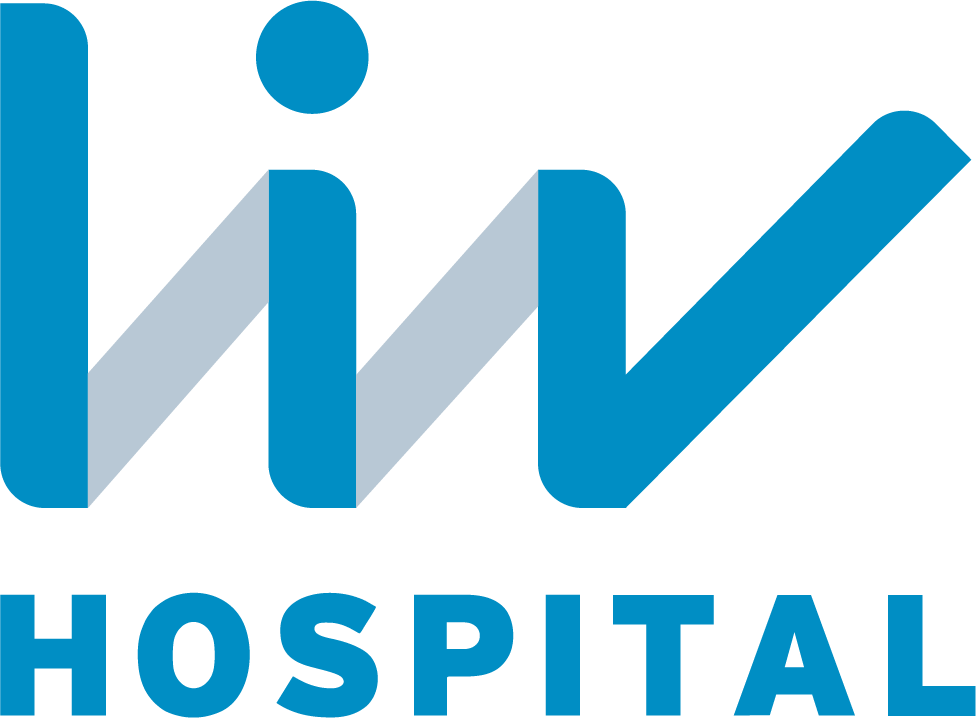Understanding Autism Spectrum Disorder
Autism Spectrum Disorder, often referred to as ASD, is a complex neurodevelopmental condition that affects communication, behavior, and social interaction. It varies widely in severity, making every case unique. Some individuals may struggle with speech or nonverbal communication, while others face sensory sensitivities or repetitive behavioral patterns. The cause of autism remains multifactorial, involving a combination of genetic and environmental factors that influence brain development during early childhood.
Over the past decade, research in regenerative medicine has introduced new treatment possibilities that go beyond traditional behavioral and medication-based approaches. Among these, Stem Cell Therapy For Autism has emerged as one of the most promising and innovative fields. This therapy aims to improve brain function, reduce inflammation, and enhance communication abilities by harnessing the natural regenerative power of stem cells.
Liv Hospital, recognized for its advanced medical technology and interdisciplinary expertise, integrates Stem Cell Therapy For Autism into a comprehensive care model. By combining regenerative medicine with neurological assessment, behavioral therapy, and rehabilitation, Liv Hospital offers individualized treatment plans that focus on improving cognitive, emotional, and social outcomes for both children and adults on the autism spectrum.

What is Stem Cell Therapy
Stem cell therapy involves the use of special cells that can develop into various types of tissue in the body. These cells have the unique ability to repair, replace, or regenerate damaged or inactive cells. In medical treatments, stem cells are used to restore the normal function of organs and tissues affected by disease or injury.
In the context of autism, stem cell therapy aims to enhance the function of the brain and the immune system. It focuses on addressing underlying neurological inflammation and supporting the body’s natural healing mechanisms. Liv Hospital’s regenerative medicine specialists use cutting-edge techniques to ensure safe and effective procedures tailored to each patient’s medical profile.
How Stem Cell Therapy Works for Autism
The human brain relies on a balanced network of neurons and neurotransmitters to process information and regulate behavior. In many cases of autism, this balance is disrupted due to inflammation or irregular neural connectivity. Stem cells can help restore this balance by reducing inflammation, improving oxygenation in brain tissues, and promoting neuronal repair.
At Liv Hospital, stem cell therapy for autism typically involves isolating and preparing the patient’s own stem cells or using ethically approved donor cells. These are administered through carefully controlled medical protocols. The goal is to stimulate regeneration and improve the functioning of brain areas responsible for communication, emotion regulation, and sensory processing.
Types of Stem Cells Used
Different types of stem cells may be used depending on the patient’s condition and treatment plan. The most common include:
1. Mesenchymal Stem Cells (MSCs)
These are derived from sources such as bone marrow or umbilical cord tissue. They have strong anti-inflammatory and regenerative properties and are widely studied for neurological applications.
2. Neural Stem Cells (NSCs)
These cells can develop directly into brain and nervous system cells, potentially aiding in neuroregeneration.
3. Hematopoietic Stem Cells (HSCs)
These originate from bone marrow or blood and are mainly used to regulate immune responses.
Liv Hospital’s regenerative medicine team determines which type of stem cell is most suitable based on the child’s age, medical background, and overall health status.
The Interdisciplinary Approach at Liv Hospital
One of the reasons Liv Hospital stands out in this field is its interdisciplinary model. Stem cell therapy for autism is not viewed as a standalone treatment but as part of a broader care strategy. The hospital’s specialists from pediatrics, neurology, immunology, and rehabilitation departments collaborate closely to design a personalized plan for each patient.
This integrated approach ensures that improvements in brain function are supported by behavioral therapy, nutritional support, and cognitive training. The focus is not just on treating symptoms but on helping each child reach their maximum developmental potential.
Benefits of Stem Cell Therapy for Autism
Clinical research and patient experiences suggest several potential benefits of stem cell therapy for individuals with autism. While results can vary, the following improvements are commonly observed:
- Better eye contact and social interaction
- Increased attention span and focus
- Enhanced language comprehension and speech development
- Reduction in repetitive behaviors
- Improved sleep and emotional stability
- Decreased hyperactivity and irritability
At Liv Hospital, patient progress is closely monitored through follow-up evaluations and developmental assessments. The hospital emphasizes long-term care and ongoing therapy to maximize the benefits achieved through stem cell applications.
The Treatment Process
The stem cell therapy process begins with a comprehensive evaluation that includes neurological assessments, blood tests, and imaging studies. Once suitability is confirmed, stem cells are collected and processed in sterile laboratory conditions.
The therapy itself may involve intravenous infusion or targeted administration, depending on the treatment protocol. The procedure is minimally invasive, and most patients resume normal activities shortly after. Liv Hospital ensures that every stage, from preparation to post-treatment monitoring, follows international safety and ethical standards.

Post-Treatment Support and Rehabilitation
Stem cell therapy for autism shows the best outcomes when combined with post-treatment rehabilitation. After the procedure, patients typically continue with behavioral therapy, speech therapy, occupational therapy, and cognitive exercises.
Liv Hospital provides structured rehabilitation programs that are customized for each child. This comprehensive support system encourages the brain to adapt and build new connections, reinforcing the effects of stem cell treatment. Parents are also guided on home care routines and progress tracking to maintain consistency in therapy.
Scientific Research and Evidence
Although stem cell therapy for autism is still under scientific evaluation, numerous studies have reported encouraging outcomes. Improvements in social communication, emotional balance, and learning ability have been documented in children who received the therapy. Research continues to explore how stem cells influence the brain’s microenvironment and promote neural regeneration.
Liv Hospital collaborates with global research institutions and maintains strict adherence to international medical regulations. The hospital’s team is committed to contributing to the growing body of evidence supporting safe and effective regenerative medicine practices.
Safety and Ethical Considerations
Stem cell therapy is performed under rigorous medical supervision to ensure patient safety. All cells used in the treatment undergo quality checks to confirm purity, viability, and compatibility. Side effects are rare and usually mild, such as temporary fatigue or minor inflammation.
Liv Hospital strictly follows ethical and legal guidelines in all its regenerative treatments. The hospital prioritizes transparency, patient education, and informed consent at every step of the process.

The Future of Autism Treatment
Stem cell therapy represents a new frontier in autism care, but it is not the only component of long-term management. Advances in genetic research, neuroimaging, and behavioral therapy are expanding the understanding of autism and improving treatment outcomes.
Liv Hospital continues to invest in the latest medical technologies and collaborative studies to refine and enhance treatment methods. The future of autism management is moving toward individualized, regenerative, and holistic care, where every child receives a plan tailored to their unique biological and emotional needs.
Choosing Liv Hospital for Stem Cell Therapy
Liv Hospital is recognized for its excellence in advanced medical treatments and personalized care. The hospital combines world-class facilities with compassionate specialists who guide families through every stage of the journey. Its regenerative medicine center is equipped with modern laboratories, advanced imaging systems, and a dedicated pediatric rehabilitation unit.
By bringing together innovation, experience, and empathy, Liv Hospital ensures that every child undergoing stem cell therapy for autism receives safe, effective, and comprehensive care designed to improve quality of life.
* Liv Hospital Editorial Board has contributed to the publication of this content .
* Contents of this page is for informational purposes only. Please consult your doctor for diagnosis and treatment. The content of this page does not include information on medicinal health care at Liv Hospital .
For more information about our academic and training initiatives, visit Liv Hospital Academy
Frequently Asked Questions
What is the goal of stem cell therapy for autism?
The main goal is to improve brain function, reduce inflammation, and enhance communication and social skills.
Is stem cell therapy safe for children with autism?
Yes, when performed under expert supervision and ethical guidelines, it is considered safe.
How long does the procedure take?
The procedure typically takes a few hours, and patients can return home the same day.
How soon can results be seen?
Improvements may appear gradually over several weeks or months, depending on the individual.
Are there any side effects?
Minor side effects such as fatigue or mild fever may occur temporarily but are generally mild.
What type of stem cells are used?
Most treatments use mesenchymal stem cells derived from bone marrow or umbilical cord tissue.
Is stem cell therapy a cure for autism?
It is not a cure but a supportive treatment that may enhance cognitive and social function.
How is the treatment monitored?
Doctors perform regular evaluations to track behavioral and neurological progress after therapy.
Can adults with autism benefit from stem cell therapy?
Yes, although most studies focus on children, adults can also experience improvement.
Why choose Liv Hospital for this therapy?
Liv Hospital offers advanced technology, expert teams, and a personalized, research-based approach to stem cell therapy for autism.























